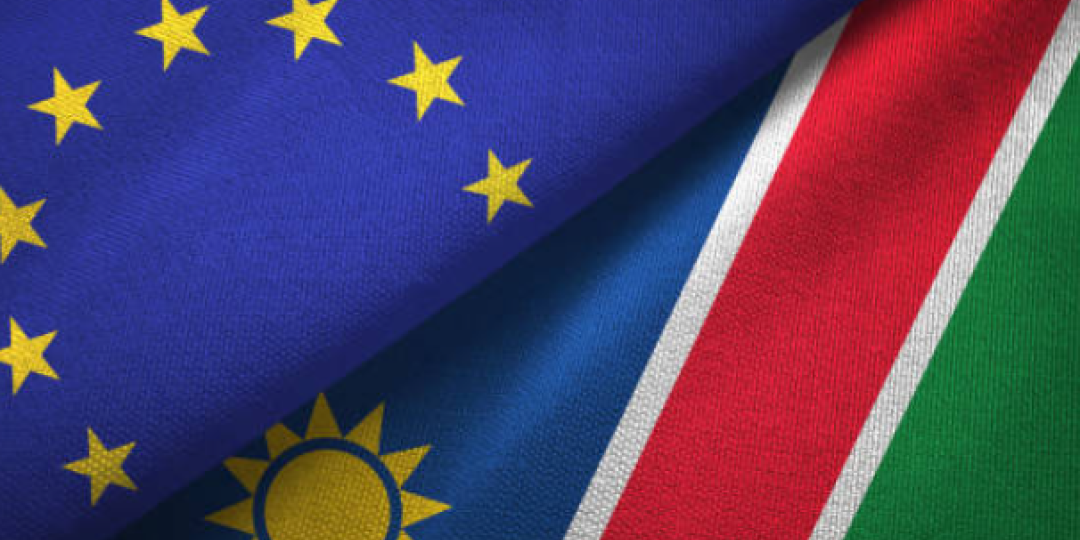Namibia will no longer export unprocessed mineral products in a bid to create more jobs by boosting domestic industrialisation efforts through downstream beneficiation, President Hage Geingob said this week.
At the opening of the first European Union and Namibian Business Forum in Belgium, Geingob's statement came after his cabinet had decided to prohibit the exportation of Namibia's critical minerals in raw form.
The forum's theme, 'Mobilising quality investment and value addition for green growth in the EU-Namibia partnership”, underpinned the country’s on green hydrogen and the sustainability of critical resources and related value chains.
Namibia's economy is intricately linked to the extraction and processing of minerals for export, contributing significantly to its gross domestic product and foreign exchange earnings – a fundamental GDP dynamic that applies to minerals such as crushed and unprocessed lithium, graphite, cobalt, manganese and rare earth elements.
Mining remains the mainstay of Namibia's economy, being the largest contributor to its GDP.
More specifically, Namibia is the fourth-largest exporter of non-fuel minerals in Africa and the world's fifth-largest producer of uranium.
In addition, rich alluvial diamond deposits make Namibia a primary source for gem-quality diamonds.
The business forum took place on the margins of the first edition of the 2023 Global Gateway Forum in Brussels.
Geingob told the gathering that securing access to critical resources is not just an economic endeavour, but also a strategic security imperative for the world's aspirations in delivering on green and clean energy objectives.
"As we embark on this journey, we recognise the importance of securing a sustainable supply of critical raw materials, such as lithium, cobalt and rare earth elements.”
He added that Namibia is endowed with year-round sunlight, proximity to the Atlantic Ocean and abundant wind power resources.
These qualities, he said, provide a strong foundation for Namibia to become an exporter of a diverse portfolio of clean energy products.
The production and export of renewable hydrogen and its derivatives, coupled with energy efficiency, electrification and direct use of renewable energy, are expected to offer Namibia an opportunity to achieve energy security.
It also provides a solid foundation upon which to establish new clean industries.
"Using Namibia's natural bounty of renewable energy and access to desalinated water to manufacture clean molecules, such as hydrogen and ammonia, is indeed a value additive economic activity that will result in systemic flows of foreign direct investment, significant gross fixed capital formation, impactful employment creation and diversification of our exports to the EU and the world," Geingob said.
It was stressed that together with its European partners, Namibia is dedicated to improving the sustainability of the extractive industry and developing local processing, refining, recovery and recycling capacity in the country.
This approach, Geingob said, has the potential to underpin sustainable, clean and inclusive economic growth, while also fostering domestic resource mobilisation, economic diversification and deeper linkages to the broader economy.
At the same occasion, Koen Doens, director general for international partnerships of the European Commission, said the business forum stems from a clear goal of expanding green hydrogen production capacity in Namibia, the development of downstream products and the local extractive refining and recycling industry for raw materials in Namibia.
To do so, the forum aims to attract European foreign direct investment into Namibia and facilitate joint ventures.
"We live in a fragmented and multipolar world, characterised by short-term shocks, such as the Covid-19 pandemic, and long-term shifts, such as climate change and demographic trends.
"In such a fragmented competitive world, it's essential to establish sustainable and equal partnerships to allow us to work together to address the most pressing challenges of our time. Namibia is a true ally when it comes to advancing the transition to a green and adjusted economy," Doens said.
He added Namibia is the first country in Africa with which the EU has signed a strategic partnership.
Since then, Namibia and the EU have worked hand-in-hand to facilitate private and public investments to address business challenges and set the appropriate regulatory framework.













